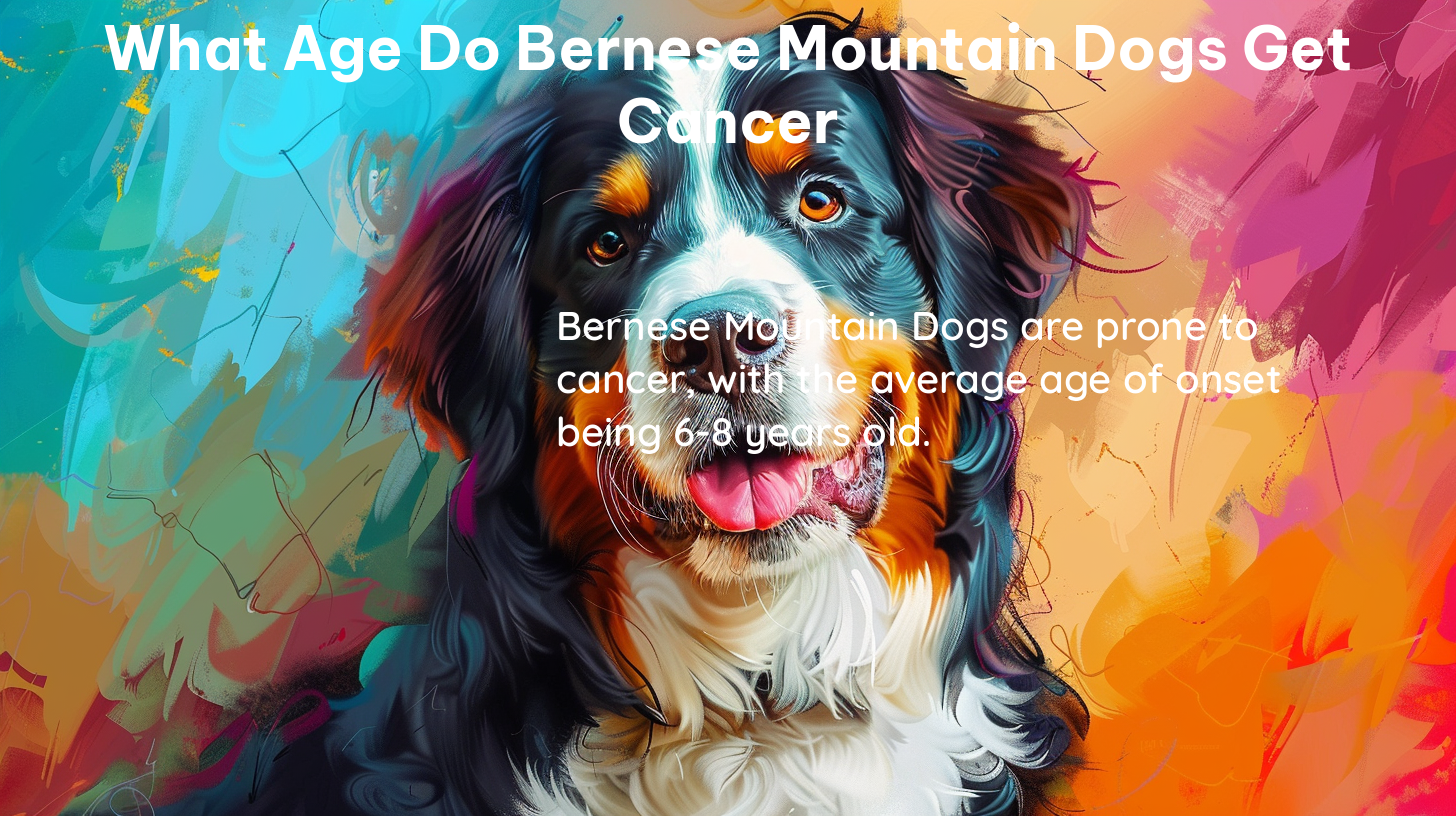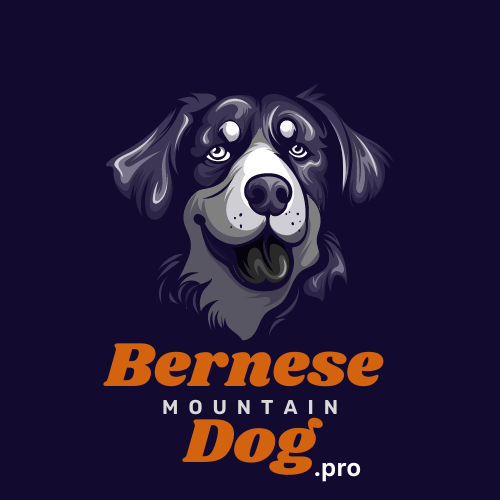Bernese Mountain Dogs are known to be prone to various types of cancer, and the age at which they typically develop these cancers is a crucial factor to consider for their owners and breeders. According to the research, Bernese Mountain Dogs are most likely to develop cancer between the ages of 5 and 7 years.
Average Age of Cancer Diagnosis in Bernese Mountain Dogs

Studies have shown that Bernese Mountain Dogs are likely to develop cancer between 5 and 7 years of age. This finding is based on data from various surveys and studies, including the Bernese Mountain Dog Club of Great Britain’s 1998 Breed Survey and the Kennel Club/BSAVA Pedigree Dogs Survey.
Percentage of Bernese Mountain Dogs Affected by Cancer

Approximately 40% to 45% of Bernese Mountain Dogs die from cancer, with the majority of these cases occurring between 5 and 7 years of age. This high incidence of cancer in the breed is a significant concern for owners and breeders.
Types of Cancer Commonly Seen in Bernese Mountain Dogs
Bernese Mountain Dogs are particularly susceptible to certain types of cancer, including:
- Histiocytosis (including systemic histiocytosis)
- Lymphoma
- Hemangiosarcoma
These types of cancer are more prevalent in Bernese Mountain Dogs compared to other dog breeds.
Factors Influencing Cancer Risk in Bernese Mountain Dogs
Several factors can contribute to a Bernese Mountain Dog’s risk of developing cancer, including:
Genetic Factors
Genetics play a significant role in the breed’s susceptibility to certain types of cancer. Responsible breeding practices that prioritize the health and longevity of the breed are crucial in managing this risk.
Diet and Lifestyle
A dog’s diet and overall lifestyle can also impact their cancer risk. Providing a balanced, high-quality diet and maintaining an active, healthy lifestyle can help mitigate the risk of cancer in Bernese Mountain Dogs.
Environmental Factors
Environmental factors, such as exposure to toxins or carcinogens, may also contribute to the development of cancer in Bernese Mountain Dogs.
Life Expectancy of Bernese Mountain Dogs
Bernese Mountain Dogs have an average lifespan of 7-9 years, which is relatively short compared to other dog breeds. Cancer is a leading cause of death in this breed, which contributes to their shorter life expectancy.
Importance of Early Detection and Preventive Care
Given the high incidence of cancer in Bernese Mountain Dogs, it is crucial for owners to be vigilant in monitoring their dogs’ health and seeking regular veterinary check-ups. Early detection of cancer can significantly improve the chances of successful treatment and management.
Additionally, responsible breeding practices that prioritize the health and longevity of the breed are essential in reducing the overall cancer risk in Bernese Mountain Dogs.
Conclusion
Bernese Mountain Dogs are a beloved breed, but their susceptibility to cancer is a significant concern for owners and breeders. By understanding the typical age of cancer diagnosis, the types of cancer commonly seen, and the factors that can influence cancer risk, owners and breeders can take proactive steps to manage this issue and provide the best possible care for their Bernese Mountain Dogs.
References:
– http://bernese.co.uk/health/lifespan-longevity-in-bernese-mountain-dogs/
– https://fruitvillevet.com/client-resources/breed-info/bernese-mountain-dog/
– https://www.webmd.com/pets/dogs/what-to-know-about-bernese-mountain-dogs
– https://bmcvetres.biomedcentral.com/articles/10.1186/s12917-016-0782-9
– https://www.vetinfo.com/bernese-mountain-dog-cancer.html

Sarah Johnson
Sarah Johnson is a devoted Bernese Mountain Dog enthusiast and regular contributor to Bernese Mountain Dog Pro. With over a decade of experience in raising and training Berners, Sarah brings practical knowledge and passion to her writing. Sarah lives in Colorado with her two Berners, Max and Bella.